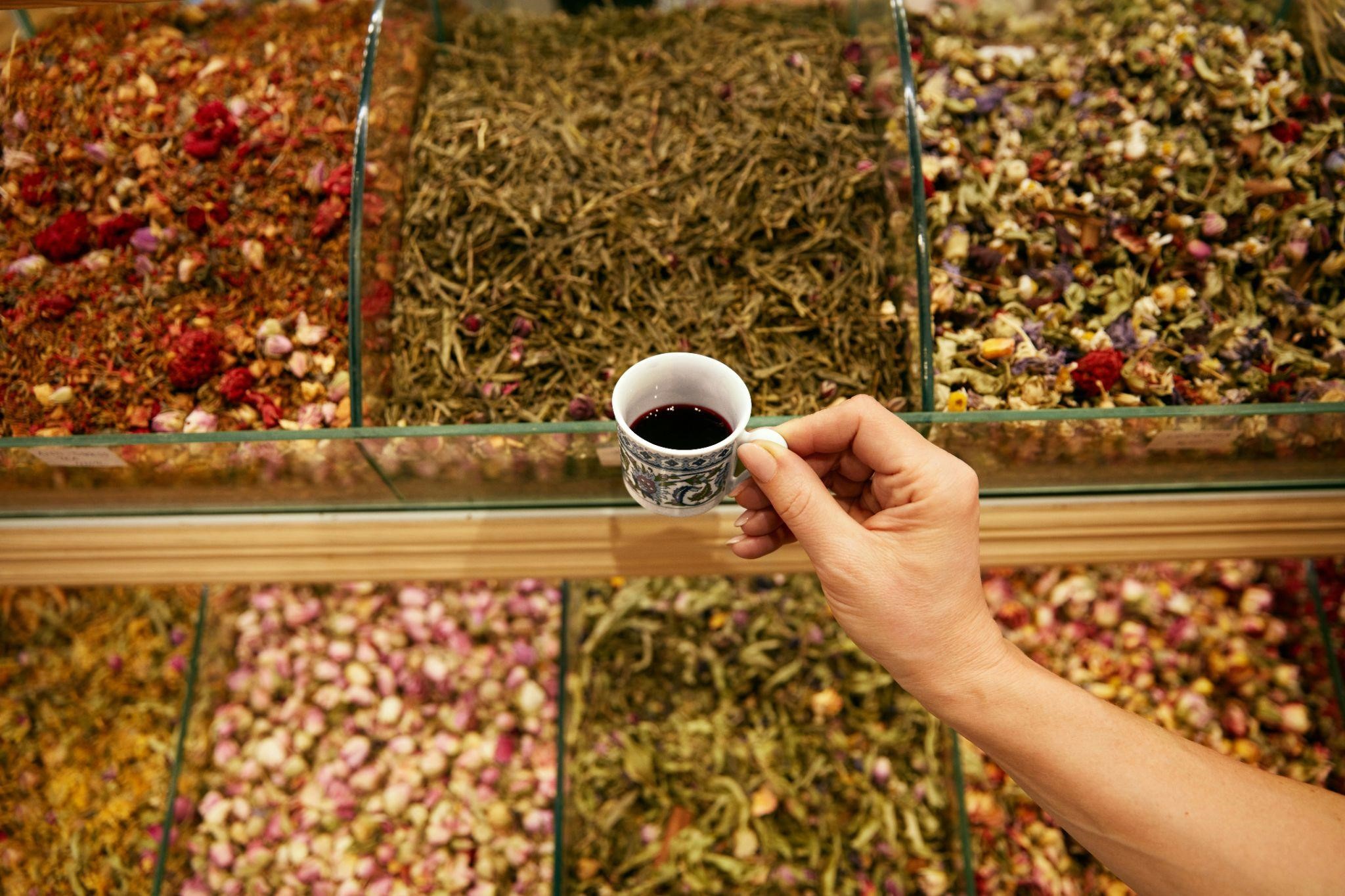How Long Do Chinese Herbs Take to Work
Posted by Warren Cargal, L.Ac on Jan 15, 2025
Traditional Chinese Medicine (TCM) and the use of Chinese herbs for wellness have captivated health enthusiasts worldwide. If you’re new to this ancient tradition, you might be curious about its effectiveness—specifically, "How long do Chinese herbs take to work?" This is a common question for those transitioning from quick-acting pharmaceuticals to a more natural, gradual approach to healing.
With a history spanning thousands of years, Chinese herbal remedies have been meticulously crafted to promote balance and harmony within the body. Unlike many modern treatments, which often focus on symptom suppression, Traditional Chinese Medicine Atlanta emphasizes addressing the root causes of health issues, making it a cornerstone of holistic wellness practices. Understanding the key factors influencing how Chinese herbs work, the timeline for results, and what you can expect from their therapeutic effects is vital to achieving optimal outcomes.
How Do Chinese Herbs Work?
Chinese herbs align with the body’s natural rhythms, restoring balance and addressing the root causes of health concerns. For more information, see our previous blog post on Exploring Qi: Energy Flow and Balance in Everyday Life. Unlike Western medicine, which often provides rapid symptom relief, Chinese herbal therapy emphasizes gradual and sustainable healing. These herbs aim to support the body’s internal systems, whether it’s by reducing inflammation, boosting energy levels, or improving immune function.
The principle behind their effectiveness lies in their ability to treat the whole person, not just isolated symptoms. For example, if someone is experiencing digestive issues, the herbal formula prescribed would address not only the immediate discomfort but also the underlying imbalance causing the problem.
Additionally, many Chinese herbs possess adaptogenic properties, which help the body better manage stress and promote resilience over time. This approach reflects TCM’s goal of achieving harmony between the body, mind, and environment for lasting health benefits.
How Long Do Chinese Herbs Take to Work?
When considering how long do Chinese herbs take to work, the answer depends on the treated condition and individual response. Chinese herbs work gradually to restore balance, and may take several weeks to months for noticeable results.
- Condition Being Treated: Acute issues may show improvement within a few days or weeks, while chronic conditions often require consistent use over several months.
- Individual Response: Each person’s body responds differently based on metabolism, age, and overall health.
- Type of Herbs Used: Single herbs may act faster, while complex formulas take time to harmonize and address multiple aspects of a condition.
On average, initial improvements can be expected within 2-4 weeks, with more significant results emerging after consistent use over a longer period.
How Effective Are Chinese Herbs?
The gradual nature of Chinese herbal therapy stems from its focus on holistic healing. Instead of merely masking symptoms, these remedies aim to strengthen the body’s systems and improve overall function. Herbs can detox the body and rid it of toxins naturally. To further explore this topic, refer to our previous blog post on 25 Ways to Detox Your Body Naturally.
Examples of Effective Chinese Herbs
Chinese herbs are effective for numerous health conditions. For example, they may help reduce inflammation, stress, and sleep disorders.

Some herbs that help reduce inflammation include:
- Turmeric: It contains curcumin, a compound with potent anti-inflammatory properties. Studies suggest it may help reduce inflammation associated with conditions like arthritis.
- Boswellia: Derived from the Boswellia serrata tree, it may help reduce inflammation in asthma and rheumatoid arthritis.
Some herbs that help in stress relief include:
- Ginseng: Some studies suggest ginseng may help reduce stress hormones like cortisol and improve mood.
- Ashwagandha: An adaptogenic herb that may help the body better cope with stress and reduce anxiety.
Some herbs that help sleep disorders include:
- Valerian root: Known for its calming and sedative effects, it may help improve sleep quality and reduce insomnia.
- Chamomile: A popular herbal tea that can promote relaxation and improve sleep.
- Passionflower: May help reduce anxiety and promote restful sleep.
Factors That Affect Results:
- Consistency is Key: Regular use, as prescribed by a qualified herbalist, ensures that the body can fully absorb and benefit from the active ingredients. Skipping doses or stopping too soon may delay results.
- Personalized Treatment Plans: A tailored approach—using specific combinations of herbs for your unique health condition—can significantly influence how quickly you notice improvements.
- Quality of Herbs: High-quality herbs ensure potency and effectiveness. Low-grade or improperly sourced products may not deliver the desired results.
- Lifestyle and Diet: Supporting herbal therapy with a balanced diet, plenty of water, and a healthy lifestyle can enhance the body’s healing ability.
Does Chinese Herbal Medicine Actually Work?
Chinese herbal medicine has stood the test of time, with centuries of use demonstrating its effectiveness for a wide range of health concerns. From managing chronic conditions to enhancing overall well-being, many patients report positive results when using these remedies under professional guidance. For more information on the effectiveness of Chinese medicine, see our previous blog post on Is TCM Effective and Safe.
What sets Chinese herbal medicine apart is its ability to address the underlying causes of health problems rather than simply treating symptoms. For example, a formula designed for stress relief might include herbs to calm the mind, regulate energy levels, and strengthen the body’s resilience against future stressors. Furthermore, modern research has begun validating the effectiveness of certain herbs for specific conditions, bridging traditional wisdom with scientific evidence. While the timeline for results may vary, the comprehensive and lasting benefits often justify the commitment.

How Long Do Chinese Herbs Stay in Your System?
Chinese herbs are natural compounds that are metabolized and excreted by the body over time. Typically, they stay in your system for 24 to 48 hours, depending on the herb’s composition and your body’s metabolism. However, their effects, such as restored balance or reduced symptoms, may last much longer with consistent use.
The duration of their presence also depends on how they are prepared and consumed. Decoctions (herbal teas) are absorbed and eliminated more quickly, while capsules or powders might have a slightly extended effect due to slower absorption. Regardless of the form, the cumulative impact of regular use can lead to significant improvements in health, demonstrating the importance of consistency and adherence to your practitioner’s recommendation.
What Are the Potential Benefits of Taking Chinese Herbs?
The potential benefits of Chinese herbs stem from their holistic approach, which focuses on restoring balance within the body rather than just alleviating symptoms. Many Chinese herbs, such as ginseng, reishi mushroom, and turmeric, contain bioactive compounds that may help enhance immune function, reduce inflammation, and improve energy levels. These herbs often support key body systems, such as the digestive, immune, and nervous systems, contributing to greater resilience against daily stressors and environmental toxins.
One of the primary benefits of Chinese herbs is their role in preventive care. They offer a way to maintain health proactively through sustainable and holistic means. Herbs such as Astragalus and Schisandra are known for their adaptogenic properties, helping to regulate the body's stress response and support long-term vitality. Additionally, Chinese herbs are often combined in customized formulas to address specific health goals, such as improving sleep, enhancing mental clarity, or supporting women's health, aligning with the needs of individuals seeking balance in their busy lives.
Moreover, Chinese herbs can complement modern wellness practices, particularly for those integrating acupuncture, meditation, and nutritional approaches into their routine. Using Chinese herbal products backed by scientific validation and recommended by trusted professionals is a perfect complement to conventional medicine. This integration can enhance overall well-being and help you feel more empowered in your natural health journey, reinforcing your commitment to a balanced and health-oriented lifestyle.
What Are the Side Effects of Chinese Herbs?
Chinese herbs are generally well-tolerated when used correctly, but you may experience mild side effects like stomach upset, allergic reactions, or fatigue. These are usually temporary and can often be mitigated by consulting a qualified practitioner who can adjust dosages or herbal combinations to suit your needs.
It’s essential to ensure that your herbs are of high quality and sourced from reputable suppliers to minimize the risk of contamination or adverse reactions. Additionally, individuals with specific health conditions or who are pregnant should seek professional advice before starting herbal therapy. With proper guidance, Chinese herbs can offer a safe and effective pathway to improved health with minimal risks compared to many pharmaceutical options.

How to Take Chinese Herbs:
Incorporating Chinese herbs into your wellness routine can be simple with the right guidance.
- Consult a Herbalist: Work with a professional to develop a tailored treatment plan.
- Follow Directions: Adhere to prescribed dosages and preparation methods, such as brewing teas or taking capsules.
- Stay Consistent: Regular use is essential for achieving optimal results.
- Monitor Effects: Track how your body responds and communicate with your practitioner if adjustments are needed.
The Importance of Patience and Professional Guidance:
If you’re wondering, "How long do Chinese herbs take to work?" it’s essential to set realistic expectations. While the wait may seem long compared to pharmaceutical drugs, the holistic benefits of Chinese herbs often outweigh the slower timeline. Working with a qualified herbalist ensures you receive a treatment plan tailored to your needs, maximizing the efficacy of your herbal therapy.
By trusting the process and remaining consistent, you can address your immediate health concerns and cultivate long-term wellness, a hallmark of Traditional Chinese Medicine.
Frequently Asked Questions
How Long Do Chinese Herbs Take To Show Results?
Chinese herbs typically show initial results within 2-4 weeks, though significant improvements may take several months, depending on the condition and consistency of use.
Can Chinese Herbs Be Taken With Western Medicine?
Yes, Chinese herbs can often complement Western medicine, but it’s crucial to consult a qualified practitioner to avoid potential interactions.
Are Chinese Herbs Safe For Long-Term Use?
Many Chinese herbs are safe for long-term use when taken under professional guidance, though regular evaluations are recommended to ensure their effectiveness and suitability.
How Do I Know If Chinese Herbs Are Working?
You’ll notice gradual improvements in symptoms, energy levels, or overall well-being; patience and consistent use are key to their effectiveness.











